Agility, flexibility and HR tech: Managing compensation strategy in a post-pandemic world
Today’s realities of work require agile compensation and total rewards strategies that leverage data and technology.
Everything HR leaders will need to manage compensation strategies in a post-pandemic world.
Company's are adapting their employee benefits.
How can strategy, process, and technology help?
Is now the time to re-evaluate technology and process for compensation modeling?
2020 changed the world of work as we know it – it’s never been more difficult to engage and motivate employees. Corporations continue to grapple with the effects of the COVID-19 pandemic. For many, this requires root-and-branch reorganization and the acknowledgment that hybrid working is probably here to stay.
The head-spinning upheaval to daily working life is leading many employees to re-evaluate their roles. Given the stress from the pandemic and sudden changes to their working routine and environment, workers are expecting equal shifts in how they are compensated. And it’s not just traditional forms of remuneration that workers are after, for example, one PwC survey found that “Over half of employees (55%) would prefer to be remote at least three days a week once pandemic concerns recede”.
beqom and UNLEASH ran a closed-door roundtable featuring HR leaders from companies across several sectors, to consider key issues facing businesses today. The speakers highlighted how specialized, agile software can help HR teams manage changes in compensation strategies and keep workers engaged.
This article is a summary of the lively discussion that explored the current performance evaluation and compensation landscape.
The new world of work calls for agile tech
Many employees have needed to adapt to a completely new way of working, with HR teams becoming reactive in their approach to change and disruption. Goals have shifted and projects have been left up in the air. Adaptive settings have become the norm, traditional performance evaluations aren’t always possible. As one senior HR leader put it: “We have to prioritize to adjust goals. New projects came onto the agenda. It has been a time to reprioritize.”
As more employees are finding themselves performing increasingly generic roles that are beyond the scope of their position, HR leaders can see a changing need and expectation from employees. One roundtable participant considered the response from HR as a result, “Direct disruptive management is going on, new technologies are accelerating, and profiles of our employees are changing. We have very high demands of our employees in this new situation.”
To help them cope with the added stress of increased workloads, corporations are reshaping the systems that support their employees, especially targeting the mechanisms that incentivize and reward them. One participant noted, “Technology can make it easier to change and to adapt and help us shorten such a long decision-making process.” One takeaway from the roundtable highlighted the need for new, agile technology to manage rewards in a way that reflects global business developments.
“Clarity is key”
Communicating changes in how performance management and compensations are evaluated is essential as roles continue to evolve. So too is clarity of message. “Communication becomes more challenging as you’re thinking about growing workloads and employee stress,” an HR practitioner noted. “We used to speak to them once or twice a year. Now it must happen more often. You have to reach employees and fulfill their expectations.”
And it’s not just about a regular drumbeat of communication. Job evaluations should start to recognize the efforts of staff who regularly go the extra mile to support their company. One example provided in the roundtable highlighted this approach, “We’re rolling out new evaluations to our IT staff… trying to create a picture that measures employees where they contribute the most and reflect that in compensation decisions.”
Another HR leader neatly summarized the point: “We can’t rely on the ‘famous calendar of communication’ now. We have a lot of financial metrics, triggered at different times. We must be able to communicate that to make [employees] understand [changes in performance management and compensation decisions]. Clarity is key.”
The ‘old ways’ won’t stand the test of time. It’s apparent from just the handful of examples witnessed in the roundtable discussion, that there would be a great benefit in a unified compensations management platform. One participant considered that “we are falling short of really using the wealth of information that is provided.” There is a need for a system that pulls together the relevant internal and external data, to make valuable business decisions and then communicate these clearly to employees. Having the information on hand is useful, but being able to use it effectively would be a game-changer.
Changing indicators of success
Firms are also wrestling with how to manage short-term incentives (STI) in a climate in constant flux. Agility will soon become a necessity as firms are required to navigate changes quickly – the timeframes for incentives are certainly changing. Employees expect to be rewarded for their personal demonstration of agility and dedication, which happens more often than the traditional review cycles. One participant from the roundtable claimed, “It’s now about planning a bonus every quarter – not yearly.”
One HR leader commented, “What if everyone has done the best they could? If you say ‘everyone is great’, does that mean no one is special?” There’s clearly an intense need for HR leaders to recognize and reward performance more than ever, in a time of unprecedented stress as the pandemic has rocked the global economy and shut down business permanently. Keeping the workforce engaged is becoming a make-or-break factor associated with employee retention – which in turn will critical to survival from the COVID-19 shockwaves. Organizations need to also balance the needs of their existing employees with attracting new talent with better incentives.
So, what’s the solution? “We need a comprehensive solution to benefits, compensation, and STIs. That agility would be very valuable,” stated a participant in the roundtable. Another participant noted, “We’re recognizing different things from our employees today than we were before. We have to think differently about how they’re incentivized and take into consideration individuals’ behavioral goals: recognize the effort they have put into working virtually to keep everything together”.
In their bid to embrace wider performance objectives, firms must level the playing field while recognizing outstanding work.
Old systems just won’t cut it
Companies have realized that the solutions they had in place before the pandemic were frequently used at a fraction of their capacity and weren’t necessarily the right tools for the job. They were complicated, clunky, DIY HR solutions that worked at a point in time, but the pandemic and global WFH policy quickly highlighted their flaws: unscalable, unreliable, and inflexible.
One roundtable participant underscored the lack of analysis and insight into the “wealth of information” at their business. Others outlined how better use of data could boost both precision and transparency of benchmarking, more directly connecting evaluation to compensation. Clearly, technology and data remain under review for this group of HR leaders, but the wheels are in motion. “We must find technology that better connects aspects like benefits, performance, and compensation, and measure its effectiveness. There is still room for improvement.”
Organizations can’t afford the old-fashioned way of doing things as processes are too long. HR leaders need a more efficient system where technology supports them on the path to agility, to encompass total rewards and compensation management, an expert told the participants. There is a way forward, founded on building blocks of technology that can be quickly rearranged as required – for example, in response to changing incentives timescales – while providing a holistic rewards solution.
The consensus across the roundtable participants was that technology that merges compensation and benefits and other facets of Total Rewards would be a big win for HR. They also agreed that their companies are not doing enough to leverage the valuable insights in their current compensation technology.
It’s a team game
To make change work, HR, line managers, and the C-Suite must pull together to make the right decisions as efficiently as possible. According to the panel, it shouldn’t just be left to HR to pick a platform then deal with problems caused by adapting to an ever-evolving and complex situation.
Some participants noted that they were already making the move towards investing in managers as a solution for this. “We are starting to pus responsibilities to the [line] manager, and just being people managers, we try to provide them with a lot of training in that direction, and we can benefit from that investment”.
Steps like this, taken together with the exploration of new technologies would suggest that there are significant advantages to empowering managers with self-service tools to manage their own teams and workers. Giving a business the strategic ability to motivate its people, and to manage their rewards fully and fairly, will ultimately result in a streamlined process, reduced costs, and a better bottom line.
Looking to the future
The world of work is in a state of rapid transformation. With this comes changes to performance evaluation and compensation systems. Getting to grips with these issues is hard, but smart teams are making strides, backed by best-in-class technology providers.
This roundtable hosted by beqom and UNLEASH shed light on the need to take a workforce’s new normal into account and to build agile compensation strategies to support this.
The most consistent commentary across the participants was the need for strategy, process, and technology that would pull together compensation and benefits in a total rewards framework. In this post-pandemic era, companies need to re-evaluate technology and process for compensation modeling, internal communications, performance management, and recognition in the context of total rewards.
Sign up to the UNLEASH Newsletter
Get the Editor’s picks of the week delivered straight to your inbox!

Head of UNLEASH Labs
Abigail is dedicated to connecting HR buyers with the technology and tools they need to succeed.
